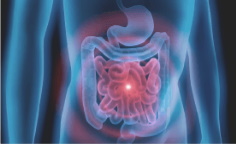Have you ever experienced a combination of any of the following conditions: diarrhoea, loose stool, gas, bloating, stomach cramps, skin rashes, unexplained food intolerances, allergies, constipation, respiratory issues like asthma, mood disorders, infections, joint pain or just feeling plain tired?
It could be that you’re suffering from what’s called “Leaky Gut Syndrome”.
The syndrome can bring terrible stress to someone’s life: worrying about going out, how close they’ll be to a toilet, needing to research a restaurant menu in advance. What a relief to finally identify a cause for these issues and be able to address them.
What is Leaky Gut Syndrome?
Leaky Gut Syndrome is when the lining of the intestine is damaged, so that what is supposed to stay within the digestive system leaks into the bloodstream causing an immune reaction that you may experience as the symptoms listed above. When this happens it is sometimes know as ‘intestinal permeability’.
There are related factors involved: if the intestinal linings are too porous, they may allow toxins or bacteria to get in the bloodstream. Meanwhile, if the body can’t break down large food molecules, it might mean that inappropriate matter is getting into the bloodstream.
The causes:-
There are multiple cause of this syndrome with some causing damage to the intestinal mucosa, others interfering with digesting and breaking down food, and some doing harm in both areas. The causes of leaky gut syndrome can include medication, alcohol, parasites, liver dysfunction, microbial imbalances and candida overgrowth.
The cure/ Solution
A complex condition will require a variety of healing solutions that will involve re-establishing internal ecology and a healthy intestinal flora, changes in diet and addressing nutritional deficiencies.
The digestive tract is an elaborate system that involves the organs from the mouth to the anus. One of the system’s components, the small intestine, performs an essential barrier function in keeping the body free from allergies.
The intestine membrane acts as a wall that separates undigested food and the bloodstream. This function allows the organs of the digestive tract to properly break down food into smaller, usable molecules, which are then sent through the bloodstream to nourish the body’s tissues.

Some amount of wall permeability is common. In people with a normal intact gut, up to 20 per cent of undigested protein can pass through the mucous membranes.
The body is designed to keep everything in its right place but here’s a problem, when there is an inflammation in the gastro intestinal mucosa, the intestinal wall becomes too porous. If bits of food have not been properly broken down due to imbalances in the digestive tract, food molecules (macro-molecules), which are usually too large to pass through the intestinal barrier, slip through the gaps in the gut wall and enter the bloodstream.
When this happens, the immune system treats these foreign substances as antigens, setting off an allergic response in which antibodies are secreted in the bloodstream to couple with and immobilise the macromolecules.
This antigen and antibody combination is known as a circulating immune complex (CIC). In a healthy person, CIC’s are neutralised but in someone with an immune system compromised by other factors, such as childhood vaccinations, poor diet, or stress, they tend to accumulate in the blood where they become difficult to get rid of and my initiate an allergic reaction.
When too many CIC’s accumulate the kidneys and liver cannot rid them from the body. The CIC’s then settle in your soft tissues which cause inflammation and bring further stress to the immune system, leading to more allergies.
How did I get it?
Leaky Gut Syndrome is called a ‘syndrome’ because there are a number of factors at play. Too much permeability of the intestinal linings is one factor. Not being able to break down large food molecules is another.
The causes – medications and alcohol can cause problems. Parasites, liver dysfunction, microbial imbalances and candida overgrowth can cause others.
Some factors, such as parasites, directly inflame the mucosal barrier, leading to excessive permeability in the intestines. Others, such as enzyme deficiency, disrupt the pH balance in the digestive tract, preventing the proper breakdown of large food molecules. Some factors can do both: the introduction of solid foods at too early a time for infants, excessive alcohol intake and internal dysbiosis also known as microbial imbalances.
A guide to your gut: common causes of leaky gut and digestive dysfunction
INTESTINAL DYBIOSIS A healthy intestine depends on proper colonisation by microflora or bacteria. There are more than 400 species of bacteria living in the human body and the majority of these bacteria reside in the gastrointestinal tract. Under conditions of intestinal health, ‘friendly’ bacteria predominate and contribute to digestion and the overall health of the body.

But, increasingly, today many people have a predominance of unhealthy or pathogenic bacteria. This is a condition called intestinal dysbiosis.
CANDIDA OVERGROWTH – Candidiasis, which is the overgrowth of Candida albicans, is one kind of intestinal dysbiosis. It’s of particular concern when it comes to allergies. Candida and other unfriendly bacteria can interfere with digestion, the adsorption of nutrients and the normal elimination cycle. They also contribute to the erosion of the intestinal membrane and the infiltration of inappropriate substances into the bloodstream.
This can also trigger allergic reactions by stimulating a non-cellular part of the immune system know as the complement pathway.
This is a technical term referring to a series of 28 proteins that are activated in a chain reaction when the immune system senses that an antigen is present.
The complement systems proper job is to amplify inflammation, because the body’s goal is to clean itself, to flush CIC’s out of the tissues. It does this by summoning additional white blood cells to the contaminated tissues to start cleansing them of Candida antigens.
But there’s a problem if the response gets out of control. If this happens the excessive inflammation, in the form of white blood cell activity damages healthy tissues.
White blood cells will release powerful peroxides (such as hydrogen peroxide) that oxidise invaders as well as healthy tissues. If this continues long enough it can lead to delayed hypersensitivity reactions, such as wheezing and allergic reactions and arthritis.
THE LIVER DYSFUNCTION is also involved in this short-lived, natural inflammatory response. Under normal conditions the liver traps about 99 per cent of the bacteria that has escaped from the intestines.
Candida overgrowth and other pathogenic bacteria activate the Kupffer cells immune cells residing in the liver which cause a release of interleukin. Interleukin 2 is a lymphokine, a chemical that calls in other white blood cells to the area to clean up the ‘gut garbage’ a process that increases inflammation.
If the liver is overburdened or compromised by poor diet, excessive toxins or other factors, it becomes less efficient at processing circulating immune complexes.
MEDICATIONS – certain drugs, such as antacids, anti-ulcer and steroid medications and oral contraceptives are alkalising. When they enter the stomach they can impair the ability of hydrochloric acid to break down food molecules creating macromolecules which can escape through a leaky gut. At the same time, these drugs can stimulate Candida overgrowth which can erode the intestinal wall.

ALCOHOL – the health risks of excessive consumption of alcohol are well known, but even moderate alcohol consumption can increase your chances of developing allergies.
According to Dr James Braly, medical director of immune Laboratories, alcohol reduces the secretion of hydrochloric acid in the stomach.
When the digestive tract is rendered more alkaline due to alcohol consumption, not only will enzymes not be activated and food not properly digested, but unfriendly intestinal flora such as Candida will flourish.
Alcohol also inhibits the efficiency of an enzyme called delta-G-desaturase, which is a key enzyme necessary for the production of anti-inflammatory prostaglandins (hormone-like fats that can cause of block inflammation.) protection against autoimmune disease, inhibition of inflammation in the intestinal wall, and maintenance of skin barrier function.
PARASITES – parasites are often overlooked contributors to a leaky gut. They tend to reside in the intestines, where they can cause extensive damage. They can also migrate to the blood, lymph, heart, liver, gallbladder, pancreas, spleen, eyes and brain but this is rare. If you have parasites, you might suffer from numerous symptoms in addition to allergies: constipation, diarrhoea, gas, bloating, irritable bowel syndrome, joint and muscle aches, anaemia, skin problems, sleep disturbances, chronic fatigue and gradual immune dysfunction.
Parasites release toxins that damage tissues, resulting in pain and inflammation
particularly in the gastrointestinal tract: over time, they can depress and even exhaust the immune system.
What can I do?
A complex condition will require a variety of healing solutions that will involve re-establishing internal ecology and a healthy intestinal flora, changes in diet and addressing nutritional deficiencies.
At Victoria O’Sullivan and Associates, we’ll partner with you to comprehensively address your health challenges, help you to understand Leaky Gut Syndrome and wet you on a path to a healthier gut and a happier you.
If you know now is your time to finally take control of your health once and for all so you don’t have it hanging over your head anymore and you know that you need support through the process then take our team up on their free initial consultation where they can show you what will be the best process for you to get the lasting change your looking for.






